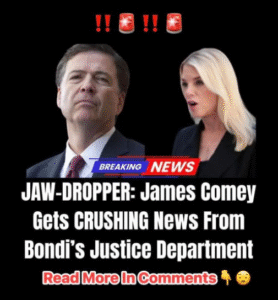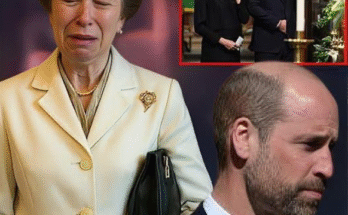⚖️ James Comey Facing Indictment: What We Know So Far
📌 Background
James Comey, who served as FBI Director from 2013 until his dismissal by President Donald Trump in 2017, has long been a polarizing figure in American politics. His involvement in two major investigations—the Hillary Clinton email probe and the Trump-Russia collusion inquiry—has drawn criticism from both sides of the political aisle. Now, nearly five years after his 2020 congressional testimony, Comey may face criminal charges for allegedly lying under oath.
🧭 The Core Allegation
At the heart of the case is Comey’s September 30, 2020 testimony before the Senate Judiciary Committee. During that hearing, he denied authorizing leaks to the media regarding the FBI’s investigations into Trump and Clinton. This denial appears to conflict with statements made by former FBI Deputy Director Andrew McCabe, who claimed Comey approved such leaks.
Senator Ted Cruz pressed Comey on this point, highlighting the contradiction. Cruz argued that either McCabe or Comey was lying under oath—a federal crime. The Justice Department’s internal watchdog later found McCabe’s account lacked candor, but also noted that Comey’s version was more consistent with the evidence.
⏳ Statute of Limitations
Federal law imposes a five-year statute of limitations on perjury charges. That window is set to close on Tuesday, making this week a critical moment for prosecutors. If charges are not filed by then, the opportunity to prosecute Comey for this specific alleged offense will expire.
🏛️ Political Pressure and DOJ Dynamics
The case has taken on a distinctly political tone. President Trump has repeatedly called for Comey’s prosecution, accusing him of being “guilty as hell” and demanding swift justice. Over the weekend, Trump posted on Truth Social urging Attorney General Pam Bondi to act, saying, “JUSTICE MUST BE SERVED, NOW!!!”.
In a controversial move, Trump recently replaced Erik Siebert, the U.S. Attorney for the Eastern District of Virginia, who reportedly opposed bringing charges against Comey. Siebert was succeeded by Lindsey Halligan, a former Trump aide and personal attorney with no prior prosecutorial experience. Halligan is now reportedly “racing” to present the case to a grand jury.
🧠 Legal Complexity
Despite the urgency, the case is not straightforward. Career prosecutors within the DOJ previously recommended against indicting Comey, citing insufficient evidence to prove he knowingly lied. According to ABC News and MSNBC, a memo was presented to Halligan outlining why charges should not be pursued, emphasizing that the evidence did not meet the threshold for conviction beyond a reasonable doubt.
Justice Department guidelines require prosecutors to believe they can win a conviction before filing charges. This internal conflict between career attorneys and political appointees adds another layer of complexity to the situation.
🔍 Other Investigative Threads
Beyond the perjury allegation, prosecutors may explore whether Comey misrepresented his awareness of intelligence related to the Clinton campaign. During his 2020 testimony, Comey claimed he didn’t recall a CIA referral about Clinton allegedly approving a smear campaign against Trump. However, records from the Durham report suggest he had been briefed on the matter months earlier.
🧨 Broader Implications
If Comey is indicted, it would mark a significant escalation in Trump’s efforts to target political adversaries through the Justice Department. Critics argue that the move reflects a politicization of federal law enforcement, while supporters see it as long-overdue accountability.
Comey has not publicly commented on the reports, and his attorney, Patrick Fitzgerald, has declined to respond to media inquiries.
📚 Historical Context
Comey’s tenure at the FBI was marked by controversy. In 2016, he reopened the Clinton email investigation just weeks before the election, a move many Democrats believe cost Clinton the presidency. In 2017, he led the FBI’s investigation into Russian interference in the election and potential ties to the Trump campaign. Trump fired him in May of that year, citing his handling of the Russia probe.
Comey later testified that Trump had pressured him to drop the investigation into former National Security Advisor Michael Flynn, which some interpreted as obstruction of justice. Although the DOJ declined to prosecute Comey for that incident, it fueled ongoing tensions between the two men.
🧾 What Comes Next?
- A grand jury in the Eastern District of Virginia is reportedly reviewing the case.
- The statute of limitations expires Tuesday, creating a narrow window for action.
- If indicted, Comey could face up to five years in prison and fines for perjury.
- The political fallout could be significant, especially as Trump continues to campaign for reelection.



